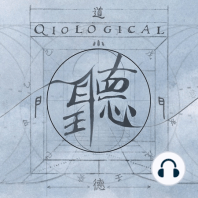58 min listen

258 A Look at the Tiger Year from the Halfway Point • Gregory Done
258 A Look at the Tiger Year from the Halfway Point • Gregory Done
ratings:
Length:
90 minutes
Released:
Jun 28, 2022
Format:
Podcast episode
Description
One certainty in life is that it’s uncertain; we can’t accurately decipher how our stories unfold. But having an outline helps as we chart a course through the seasons of time. A key part of navigating the ever-changing phases of life is embracing the duality and non-duality within the cycles of yin and yang.It’s helpful to accept that there are different seasons and adapt to their ebb and flow. Tune in to the rhythm and harmony of the cycles. This is the underpinning of Chinese Polestar Astrology, which offers a symbolic lens through which we can look at our experience—leaning on the insights of the cycle of 60 and the influences that inform its unfolding. In this conversation, we visit again with Gregory Done as we transition to the second half of the year. We spoke earlier this year in episode 249, where we discussed the interaction of character, nature, and fate—and how this informs our experiences. In this conversation, we explore the harmonizing of capacity and opportunity as the annual cycles of yin and yang change into each other, and how symbols in Chinese Astrology can help interpret the past, present, and the blurry future. We look back at the last 6 months before turning our gaze on what the rest of the year might hold for all the 12 Zodiac animals.Listen into this discussion on the influences of the year according to Polestar Astrology, and the possibilities, opportunities and challenges for the coming 6 months.
Released:
Jun 28, 2022
Format:
Podcast episode
Titles in the series (100)
024 Weighty Matters_ Talking To Our Patients About Addiction • Xander Kahn by Qiological Podcast